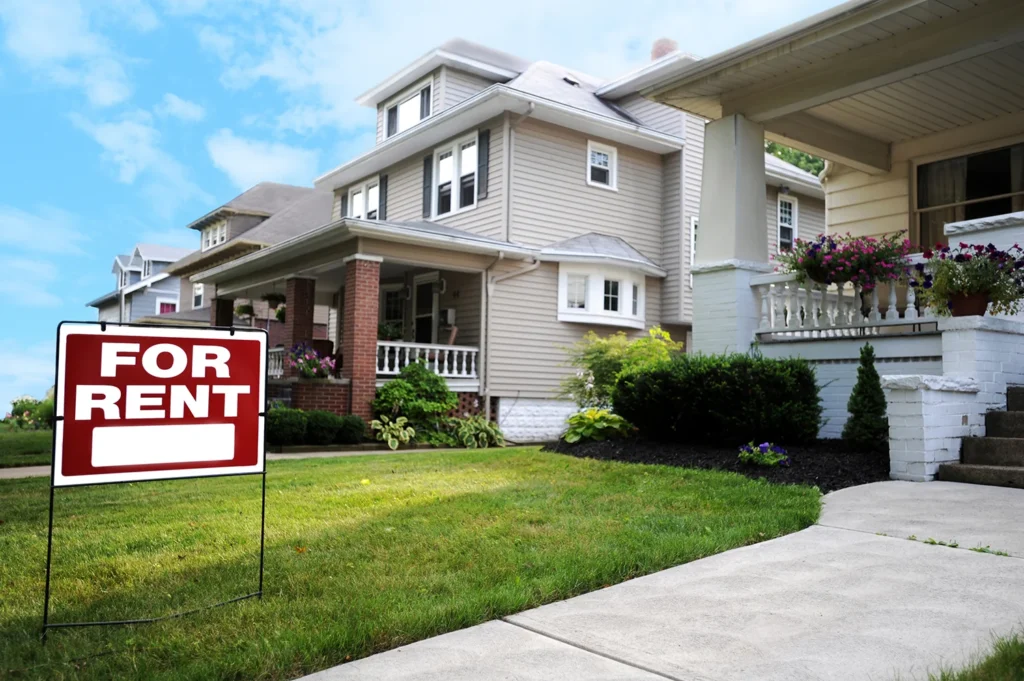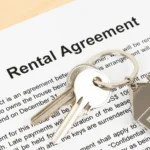So, you’ve decided to take the plunge and rent out your property. Congratulations! Becoming a landlord can be a rewarding experience, providing a steady stream of passive income and building long-term wealth. But before you jump in headfirst, you’re probably asking yourself a crucial question: Do I need a property manager to rent my home?
It’s a question many property owners grapple with. Managing a rental property involves a significant time commitment and a diverse skill set. From finding and screening tenants to handling maintenance requests and collecting rent, the responsibilities can quickly become overwhelming.
This comprehensive guide will delve deep into the pros and cons of hiring a property manager, helping you make an informed decision that aligns with your individual needs and circumstances. We’ll explore the key responsibilities of property management, the costs involved, and the situations where professional help can be particularly beneficial.
What Does a Property Manager Do?
A property manager acts as your representative, handling the day-to-day operations of your rental property. Their responsibilities typically include:

- Marketing and Advertising: Property managers are skilled in marketing and advertising, creating appealing listings that attract qualified tenants. They utilize various online and offline platforms to reach a wide audience and showcase the unique features of your property. They also schedule and conduct property showings, ensuring a positive first impression for potential tenants.
- Tenant Screening: Thorough tenant screening is crucial to ensure the safety and well-being of your property and other tenants. Property managers conduct comprehensive background checks, credit checks, and verify employment and rental history to identify reliable and responsible tenants. This process helps minimize the risk of late rent payments, property damage, and other issues.
- Lease Agreements: A well-written lease agreement is essential for protecting your interests as a landlord. Property managers draft legally sound lease agreements that comply with local laws and address all relevant terms and conditions. They ensure that both you and your tenant understand the rights and obligations of each party, minimizing the potential for misunderstandings or disputes.
- Rent Collection: Rent collection is a core responsibility of property managers. They efficiently collect monthly rents, enforce late fees as necessary, and handle any rent-related disputes. This ensures that you receive your rental income on time and consistently, maintaining the financial stability of your investment.
- Maintenance and Repairs: Property managers are responsible for handling maintenance requests and coordinating repairs with contractors. They ensure that the property is well-maintained and that any issues are addressed promptly. This not only keeps your tenants happy and satisfied but also helps to prevent costly damage and prolong the life of your property.
- Financial Management: Property managers handle all financial aspects of your rental property, including security deposits, property expenses, and rent collection. They provide detailed financial reports, allowing you to track your income and expenses and make informed decisions about your investment.

- Legal Compliance: Staying abreast of landlord-tenant laws can be challenging. Property managers ensure that your property complies with all applicable regulations, minimizing your risk of legal issues. They also handle any legal matters that may arise, such as eviction proceedings or tenant disputes.
Essentially, a property manager takes the hassle out of being a landlord, allowing you to enjoy the benefits of property ownership without the associated stress and time commitment.
Benefits of Hiring a Property Manager
Hiring a property manager can offer numerous advantages, especially if you:
- Lack the time or expertise: Managing a rental property is practically a full-time job. If you have a busy career, live far from your rental property, or simply don’t want to deal with the day-to-day responsibilities, a property manager can be a lifesaver.
- Want to minimize stress: Dealing with tenant issues, maintenance emergencies, and legal complexities can be stressful. A property manager handles these challenges on your behalf, giving you peace of mind.
- Desire higher-quality tenants: Experienced property managers have robust screening processes to attract and secure reliable tenants who pay rent on time and take care of your property.
- Aim for lower tenant turnover: By efficiently addressing tenant concerns and maintaining the property in excellent condition, property managers can help reduce tenant turnover, saving you time and money in the long run.
- Need help with legal compliance: Landlord-tenant laws are complex and vary by location. A property manager ensures you comply with all regulations, minimizing your legal risks.
- Want to maximize your rental income: Property managers can help you set competitive rental rates, reduce vacancy periods, and optimize your property’s profitability.

Drawbacks of Hiring a Property Manager
While hiring a property manager offers significant benefits, there are also some potential drawbacks to consider:
- Cost: Property management fees can eat into your rental income. It’s crucial to weigh the costs against the time and stress you’ll save.
- Loss of control: When you hire a property manager, you relinquish some control over your property. You’ll need to trust their judgment and decision-making.
- Potential for poor service: Not all property management companies are created equal. It’s essential to research thoroughly and choose a reputable company with a proven track record.
How Much Does a Property Manager Cost?
Property management fees vary depending on several factors, including:
- Location: Fees tend to be higher in competitive urban areas.
- Property type: Managing a single-family home typically costs less than managing a large apartment complex.
- Services offered: Full-service property management will cost more than a la carte services.
Generally, property managers charge a percentage of the monthly rent, typically ranging from 8% to 12%. Some companies may also charge additional fees for services like:
- Leasing fees: A one-time fee for finding and placing a tenant.
- Vacancy fees: A fee charged when the property is vacant.
- Maintenance fees: A markup on the cost of repairs.
It’s crucial to obtain detailed quotes from multiple property management companies and carefully compare their fees and services before making a decision.

Factors to Consider When Making Your Decision
Deciding whether to hire a property manager is a significant decision that requires careful consideration of your personal circumstances and priorities. Here’s a deeper dive into the factors that can help you make the right choice:
- Your time commitment: Managing a rental property can be surprisingly time-consuming. Are you prepared to dedicate the necessary hours to marketing your property, screening tenants, handling maintenance requests, collecting rent, and addressing tenant concerns? If you have a demanding career, family obligations, or other commitments that limit your availability, a property manager can be invaluable in freeing up your time.
- Your experience: Do you possess the knowledge and skills required to effectively manage a rental property? This includes understanding landlord-tenant laws, drafting legally sound lease agreements, conducting thorough tenant screenings, and handling maintenance and repairs. If you’re new to real estate or lack confidence in these areas, a property manager can provide the expertise and support you need.
- Your location: The proximity of your rental property to your primary residence plays a significant role in your ability to manage it effectively. If you live far away, it can be challenging to respond to tenant needs, oversee maintenance, and handle emergencies. In such cases, a local property manager can act as your on-the-ground representative, ensuring that your property is well-managed and your tenants are satisfied.
- Your financial situation: Property management fees can impact your overall profitability. It’s essential to assess your financial situation and determine if you can comfortably afford these costs. While property managers can help maximize your rental income through efficient management and reduced vacancy rates, it’s crucial to weigh these benefits against the fees involved.
- Your risk tolerance: Landlords face various risks, including tenant disputes, property damage, and legal issues. Are you comfortable handling these challenges independently, or would you prefer the peace of mind that comes with having a professional manage these risks? Property managers have the experience and resources to navigate difficult situations and protect your interests.

By carefully evaluating these factors, you can make an informed decision about whether to hire a property manager. Consider your individual needs, priorities, and resources to determine the best approach for managing your rental property.
When is a Property Manager Essential?
While hiring a property manager is always an option, certain situations make it almost essential:
- You own multiple properties: Managing multiple properties can quickly become overwhelming. A property manager can efficiently handle all aspects of your portfolio.
- You live far from your rental property: If you live out of state or a significant distance from your rental property, a property manager can act as your eyes and ears on the ground.
- You’re dealing with difficult tenants: If you’re facing challenges with a tenant, a property manager can step in to handle the situation professionally and protect your interests.
- You’re unfamiliar with landlord-tenant laws: Navigating complex legal regulations can be daunting. A property manager ensures you comply with all applicable laws.
- You lack the time or desire to manage your property: If you simply don’t want to deal with the hassles of property management, hiring a professional can free up your time and reduce your stress.
If any of these situations resonate with you, it’s worth seriously considering the advantages of professional property management. A reputable property manager can alleviate the burdens of landlord responsibilities, maximize your rental income, and provide peace of mind knowing your investment is in capable hands.
For more information on landlord-tenant laws in your area, you can refer to resources like the Department of Housing and Urban Development (HUD) website or your state’s Real Estate Commission.

Managing Your Rental Property Yourself
Taking on the role of a landlord yourself can be a rewarding experience, offering greater control over your property and the potential for increased profits. However, it requires dedication, organization, and a proactive approach. Here’s a closer look at the essential aspects of successful self-management:
- Screen tenants thoroughly: Finding reliable tenants is crucial for a positive rental experience. Conduct comprehensive background checks using reputable services like MySmartMove or RentPrep. Verify employment and income to ensure tenants can afford the rent, and contact previous landlords to gain insights into their rental history.
- Use a legally sound lease agreement: A well-drafted lease agreement is your primary legal protection. It should clearly outline the terms of the tenancy, including rent amount, due date, security deposit, maintenance responsibilities, and rules regarding pets, guests, and property alterations. Consider consulting with a real estate attorney or using online resources like Rocket Lawyer to create or review your lease agreement.
- Establish clear communication channels: Open and effective communication is key to a harmonious landlord-tenant relationship. Be responsive to tenant inquiries, address maintenance requests promptly, and provide clear instructions regarding rent payments and other important matters. Consider using a dedicated communication platform or app to streamline interactions and maintain a record of all communications.
- Keep meticulous records: Maintaining accurate and organized records is crucial for financial management and tax purposes. Track all rental income and expenses, including mortgage payments, property taxes, insurance premiums, maintenance costs, and any other relevant expenditures. Utilize spreadsheets, accounting software, or property management tools to simplify record-keeping.
- Stay informed about landlord-tenant laws: Landlord-tenant laws vary by state and even locality. Familiarize yourself with the regulations governing security deposits, lease terminations, eviction procedures, and other relevant aspects of landlord-tenant relationships. Consult your local housing authority or refer to online resources like Nolo for comprehensive legal information.
By diligently following these tips, you can effectively manage your rental property yourself, minimizing potential risks and maximizing your investment returns. However, remember that self-management requires ongoing commitment and a willingness to learn and adapt to changing circumstances.

Avenue Residential: Your Trusted Property Management Partner
If you’re considering hiring a property manager, Avenue Residential Leasing & Management is your trusted partner. We offer comprehensive property management services tailored to your unique needs. Our experienced team handles everything from tenant screening and rent collection to maintenance and legal compliance, allowing you to enjoy the benefits of property ownership without the hassle.
Here’s how Avenue Residential can help:
- Maximize your rental income: We set competitive rental rates and minimize vacancy periods to optimize your property’s profitability.
- Attract high-quality tenants: Our rigorous screening process ensures we place reliable tenants who will care for your property.
- Reduce your stress: We handle all aspects of property management, so you can relax and enjoy peace of mind.
- Provide expert advice: Our team offers valuable insights and guidance to help you make informed decisions about your rental property.
Ready to experience the Avenue Residential difference?
Contact us today for a free consultation and let us help you achieve your property investment goals. We’re committed to providing exceptional service and maximizing your return on investment.







